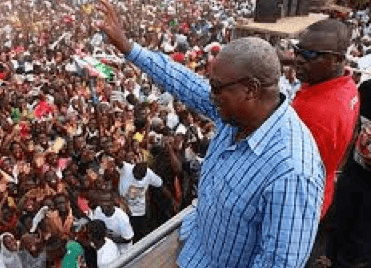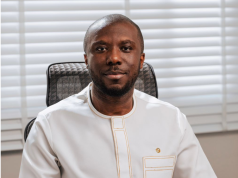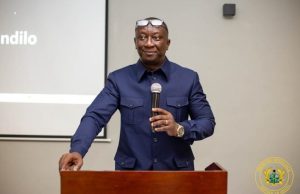As Ghana approaches its crucial 2024 general election, the nation finds itself at the centre of a sophisticated propaganda war. With political parties, interest groups, and even foreign actors vying for influence, the impact of propaganda on the democratic process has never been more pronounced or complex. This comprehensive analysis digs into the multifaceted world of election propaganda in Ghana, exploring its methods, effects, and implications for the country’s democratic future.
The digital battlefield
In 2024, social media platforms have become the primary battleground for political messaging. Facebook, X (Twitter), WhatsApp, and TikTok are flooded with campaign materials, ranging from legitimate party communications to misleading memes and deepfake videos. The Ghana Electoral Commission reports a 300% increase in social media-related election complaints compared to the 2020 election.
Dr. Kwame Asante, a political scientist at the University of Ghana, explains, “The speed and reach of social media make it the perfect vehicle for both information and misinformation. A false claim can circulate nationwide before fact-checkers have even begun their work.”
This rapid dissemination of information has created an environment where the line between fact and fiction is increasingly hazy. Political strategists are exploiting this to their advantage, crafting narratives that resonate emotionally with voters, often at the expense of truth.
Traditional media’s evolving role
While digital platforms dominate, traditional media remains influential, especially in rural areas. Radio, in particular, continues to play a crucial role in disseminating political messages. However, the line between news and propaganda has blurred, with some stations accused of partisan reporting.
The Ghana Journalists Association has implemented a new code of ethics specifically addressing election coverage, but enforcement remains a challenge. “We’re seeing a concerning trend of media houses aligning with political parties, either overtly or covertly,” says Abena Mensah, media watchdog and founder of Ghana Media Watch. This alignment raises questions about the impartiality of news reporting and the overall health of Ghana’s media landscape.
Moreover, newspapers and television channels are increasingly reliant on advertising revenue from political parties, which can compromise their objectivity. The result is a media environment saturated with partisan viewpoints, further complicating voters’ ability to discern credible information.
Foreign influence
International actors have also entered the fray, with evidence of foreign-sponsored disinformation campaigns aimed at influencing Ghanaian voters. The National Cyber Security Centre has reported a 500% increase in foreign-originated political content since January 2024.
“Some of these campaigns are sophisticated operations designed to exacerbate existing social divisions or promote certain policy positions beneficial to foreign interests,” warns Samuel Atta, Director of the Centre. This foreign interference raises serious questions about sovereignty and the integrity of Ghana’s electoral process.
The implications of such influence are profound. Voters may be swayed by narratives that do not reflect their reality, potentially undermining the democratic process. As Ghana grapples with these external pressures, the need for protective measures becomes increasingly urgent.
The psychological impact
The pervasive nature of propaganda is taking a toll on the electorate. A recent survey by the Ghana Center for Democratic Development found that 68% of voters feel overwhelmed by the amount of political information they encounter daily, while 72% express difficulty in distinguishing between genuine news and propaganda.
Dr. Esther Amanor, a psychologist specializing in political behaviour, notes, “We’re seeing increased anxiety, polarization, and in some cases, political apathy. The constant barrage of conflicting information is affecting people’s ability to make informed decisions.” This psychological burden can lead to disengagement from the political process, further weakening democratic institutions.
Moreover, the emotional toll of misinformation can foster division among communities. As individuals become entrenched in their beliefs, the possibility of constructive dialogue diminishes, creating an atmosphere of hostility.
Economic implications
The propaganda war is also having economic repercussions. Some businesses report losing customers due to perceived political affiliations, while others are exploiting the polarized environment for profit.
Economist Dr. Yaw Mensah explains, “We’re seeing a ‘propaganda economy’ emerge, with significant resources being channeled into creating and disseminating political content. This diverts investment from productive sectors and can lead to market instability based on rumor and misinformation.”
The economic landscape is thus affected not only by the political climate but also by the narratives that dominate public discourse. Companies facing backlash for their perceived political stances may find themselves at a disadvantage, leading to job losses and economic instability.
Countermeasures and civic response
In response to these challenges, various initiatives have emerged. The Electoral Commission has partnered with major tech companies to implement fact-checking systems and remove false content. Civil society organizations are conducting nationwide media literacy campaigns, teaching citizens how to identify and report propaganda.
“It’s a constant battle,” says Akua Danso, leader of the Ghana Fact-Check Project. “For every piece of misinformation we debunk, five more pop up. But we’re making progress in educating the public and building resilience against propaganda.”
These efforts are essential for fostering an informed electorate capable of navigating the complexities of modern political communication. As media literacy improves, citizens may become more discerning consumers of information, less susceptible to manipulation.
Political parties’ perspective
Interestingly, major political parties acknowledge the double-edged nature of propaganda. While all engage in strategic messaging, there’s a growing recognition of the long-term risks to democratic stability.
A spokesperson for the ruling party states, “We understand the temptation to use every tool available, but we also recognize our responsibility to maintain the integrity of our democracy. It’s a delicate balance.”
The opposition echoes this sentiment, adding, “The real victory isn’t just winning an election, but ensuring that Ghana’s democratic institutions remain strong and credible.” Such acknowledgment is crucial as it reflects an understanding that the health of democracy transcends electoral victories.
Looking ahead
As the election approaches, the impact of propaganda on Ghana’s political landscape remains a critical issue. While it poses significant challenges, it has also sparked important conversations about media literacy, political ethics, and the nature of democracy in the digital age.
Dr. Asante concludes, “How Ghana navigates this propaganda-saturated election will set a precedent not just for our country, but for democracies across Africa. The world is watching, and the stakes couldn’t be higher.”
This comprehensive examination of propaganda in Ghana’s 2024 election reveals a complex interplay of technology, psychology, economics, and civic engagement. As the nation grapples with these challenges, the outcome will undoubtedly shape the future of democratic discourse in an increasingly connected world. The battle for hearts and minds is not just about winning an election; it is about safeguarding the very essence of democracy itself.
By Innocent Samuel Appiah
Copyright ©2024 by NewsBridge Africa
All rights reserved. This article or any portion thereof may not be reproduced or used in any manner whatsoever without the express written permission of the publisher except for the use of brief quotations in reviews.


















